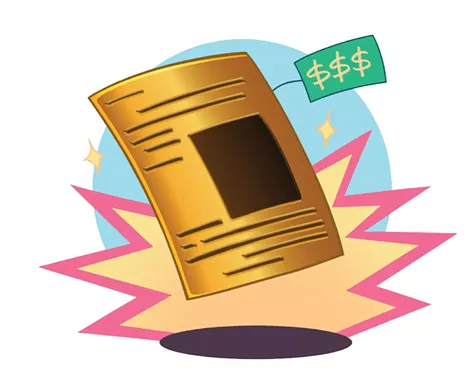Since its founding in 1976, Project Censored has been focused on stories — like Watergate before the 1972 election — that aren’t censored in the authoritarian government sense, but in a broader, expanded sense reflective of what a functioning democracy should be, censorship defined as “the suppression of information, whether purposeful or not, by any method — including bias, omission, underreporting, or self-censorship — that prevents the public from fully knowing what is happening in society.” It is, after all, the reason that journalism enjoys special protection in the First Amendment: Without the free flow of vital information, government based on the consent of the governed is but an illusory dream.
Yet, from the very beginning, as A.J. Liebling put it, “Freedom of the press is guaranteed only to those who own one.”
In their introduction to Project Censored’s annual State of the Free Press, which contains its top censored stories and much more, Project Censored's Mickey Huff and Andy Lee Roth take this condition head-on, under the heading, State of the Billionaire, in contrast to the volume’s title, State of the Free Press 2023. Following a swift recap of historic media criticism highlights — Upton Sinclair, the aforementioned Leibling, Ben Bagdikian, Edward Herman, and Noam Chomsky — they dryly observe, “History shows that consolidated media, controlled by a handful of elite owners, seldom serves the public interest,” and briefly survey the contemporary landscape before narrowing their gaze to the broadest of influencers:
“In pursuit of their own interests and investments, media tycoons past and present, again and again, appear to be conveniently oblivious to the main frame through which they filter news — that of class, including class structure and class interests,” Huff and Roth write. “Consequently, they often overlook (or ignore) conflicts of interest that implicate media owners, funders, investors, and advertisers, not to mention their business clients on Wall Street and in Big Pharma, Big Tech, and the military-industrial complex.”
Every year, I note that there are multiple patterns to be found in the list of Project Censored’s stories, and that these different patterns have much to tell us about the forces shaping what remains hidden. That’s still true, with three environmental stories (two involving fossil fuels), three involving money in politics (two dark money stories), and two involving illicit surveillance. But the dominance of this one pattern truly is remarkable. It shows how profoundly the concentration of corporate wealth and power in the hands of so few distorts everything we see — or don’t — in the world around us every day. Here then, is this year’s list of Project Censored’s top 10 censored stories.
Paul Rosenberg is a Los Angeles, California-based writer, senior editor for Random Lengths News, and a columnist for Salon and Al Jazeera English.

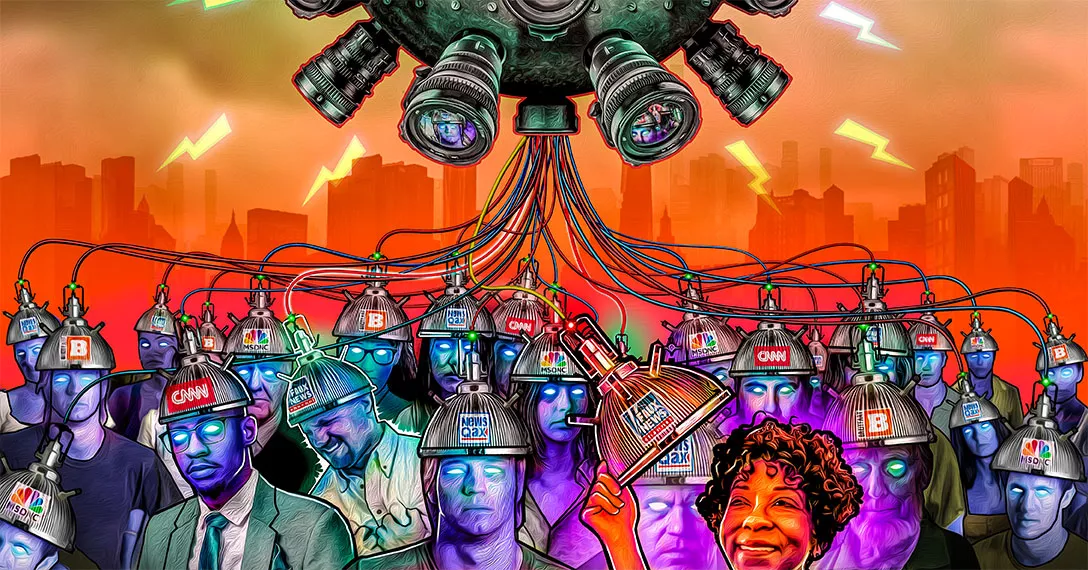
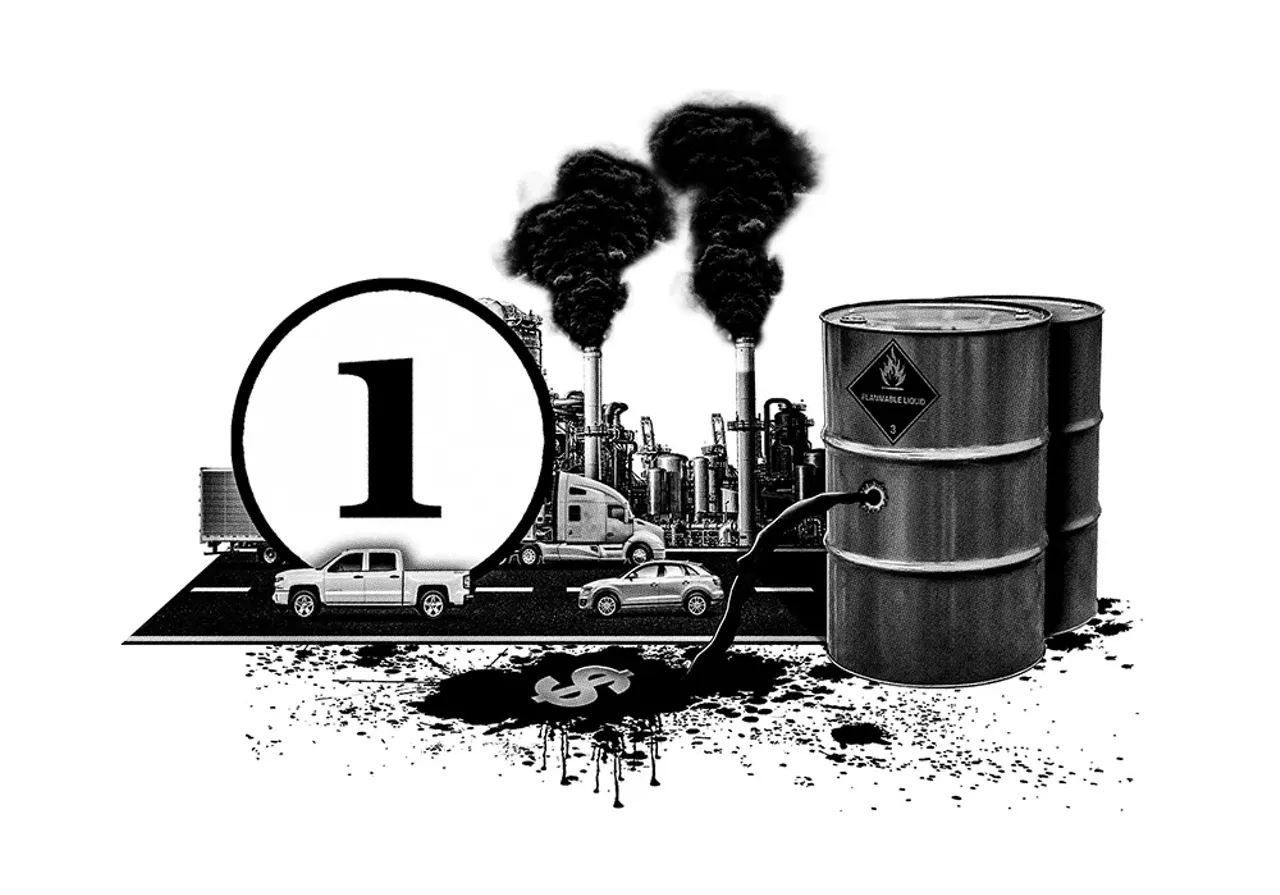
![2: Wage theft: U.S. businesses suffer few consequences for stealing millions from workers every year In 2017, the FBI reported the cost of street crime at about $13.8 billion, the same year that the Economic Policy Institute released a study saying that just one form of wage theft — minimum wage violations — costs U.S. workers even more: an estimated $15 billion annually, impacting an estimated 17% of low-wage workers. One reason it’s so rampant is that companies are seldom punished, as Alexia Fernández Campbell and Joe Yerardi reported for the Center for Public Integrity in May 2021, drawing on 15 years of data from the U.S. Department of Labor’s Wage and Hour Division. “The agency fined only about one in four repeat offenders during that period. And it ordered those companies to pay workers cash damages — penalty money in addition to back wages — in just 14 percent of those cases,” they wrote. In addition, “The division often lets businesses avoid repaying their employees all the money they’re owed. In all, the agency has let more than 16,000 employers get away with not paying $20.3 million in back wages since 2005.” We’re talking about some major companies. Halliburton, G4S Wackenhut, and Circle K Stores were among “the worst offenders,” they reported. That report kicked off the center’s “Cheated at Work” series, which showed that “U.S. employers that illegally underpaid workers face few repercussions, even when they do so repeatedly. This widespread practice perpetuates income inequality, hitting lowest-paid workers hardest.” “Wage theft includes a range of illegal practices, such as paying less than minimum wage, withholding tips, not paying overtime, or requiring workers to work through breaks or off the clock. It impacts service workers, low-income workers, immigrant and guest workers, and communities of color the most,” Project Censored explained. Wage theft also includes worker misclassification as independent contractors — long the case with port truckers, and more recently gig workers. A 2014 study from the National Employment Law Center estimated that “California’s port trucking companies are liable to drivers for violations of wage and hour laws for $65 to $83 million each month, or $787 to $998 million each year." Lack of resources is largely to blame for the lax enforcement, Project Censored explained: “As of February 2021, the Wage and Hour Division employed only 787 investigators, a proportion of just one investigator per 182,000 workers covered by the Fair Labor Standards Act, Campbell and Yerardi noted. For comparison, in 1948 the division employed one investigator per 22,600 workers, or eight times the current proportion.” Lax enforcement is “especially problematic” in some 14 states that “lack the capacity to investigate wage theft claims or lack the ability to file lawsuits on behalf of victims,” according to a 2017 Economic Policy Institute report. In contrast, the center’s report “mentioned local successes in Chicago (2013), Philadelphia (2016), and Minneapolis (2019),” Project Censored noted, but “workers’ rights advocates continue to seek federal reforms.” “Since May 2021, a handful of corporate news outlets, including CBS News, covered or republished the Center for Public Integrity’s report on wage theft,” Project Censored noted, but “Corporate coverage tends to focus on specific instances involving individual employers,” while ignoring it “as a systemic social problem” as well as ignoring the “anemic federal enforcement.” That could change, if Congress were to pass the “Wage Theft Prevention and Wage Recovery Act of 2022,” which “would amend the Fair Labor Standards Act to protect workers from wage theft, according to Ariana Figueroa of the Virginia Mercury,” Project Censored noted, concluding with a quote from Minnesota congressperson Ilhan Omar: “It is clear more DOL [Department of Labor] funding and additional federal reforms are needed in our localities in order to protect our most vulnerable workers.”](https://media2.metrotimes.com/metrotimes/imager/project-censoreds-top-10-stories-of-2022-show-just-one-pattern-dominating-all-others-this-year/u/zoom/31843688/_pc-2.webp?cb=1738677333)
![3: EPA withheld reports on dangerous chemicals In January 2019, the Environmental Protection Agency, or EPA, stopped releasing legally required disclosures about chemicals that present a “substantial risk of injury to health or the environment.” They had previously been posted in a searchable public database called ChemView. In November 2021, as part of the Intercept’s “EPA Exposed” investigative series, Sharon Lerner reported that EPA had received “at least 1,240 substantial risk reports since January 2019, but only one was publicly available. The suppressed reports documented “the risk of chemicals’ serious harms, including eye corrosion, damage to the brain and nervous system, chronic toxicity to honeybees, and cancer in both people and animals,” Lerner wrote. “The reports include notifications about highly toxic polyfluoroalkyl substances, or PFAS, chemical compounds that are known as “forever chemicals” because they build up in our bodies and never break down in the environment,” Project Censored noted. “The Environmental Working Group explains that ‘very small doses of PFAS have been linked to cancer, reproductive and immune system harm, and other diseases. For decades, chemical companies covered up evidence of PFAS’ health hazards.’” Their spread throughout the world’s oceans, along with microplastics, was Project Censored #5 story last year. It wasn’t just the public that was kept in the dark, Lerner reported. “The substantial risk reports have not been uploaded to the databases used most often by risk assessors searching for information about chemicals, according [to] one of the EPA scientists… They have been entered only into an internal database that is difficult to access and search. As a result, little — and perhaps none — of the information about these serious risks to health and the environment has been incorporated into the chemical assessments completed during this period.” “Basically, they are just going into a black hole,” one whistleblower told Lerner. “We don’t look at them. We don’t evaluate them. And we don’t check to see if they change our understanding of the chemical.” Apart from the Intercept, “only a handful of niche publications have reported on the matter,” Project Censored noted. However, in January 2022 Public Employees for Environmental Responsibility (PEER) filed a lawsuit to compel EPA to disclose the reports, following up on an earlier public records request which, the National Law Review reported, was “built upon information reported in a November 2021 article in The Intercept.” Just weeks later EPA announced it would resume posting the reports in ChemView, Project Censored noted. “Clearly, independent journalism contributed significantly to this outcome,” they said. “Had it not been for the work of investigative journalist Sharon Lerner at the Intercept, EPA whistleblowers would not have had a platform to share concerns that ultimately led the agency to resume these critical public disclosures.”](https://media1.metrotimes.com/metrotimes/imager/project-censoreds-top-10-stories-of-2022-show-just-one-pattern-dominating-all-others-this-year/u/zoom/31843689/_pc-3.webp?cb=1738677368)
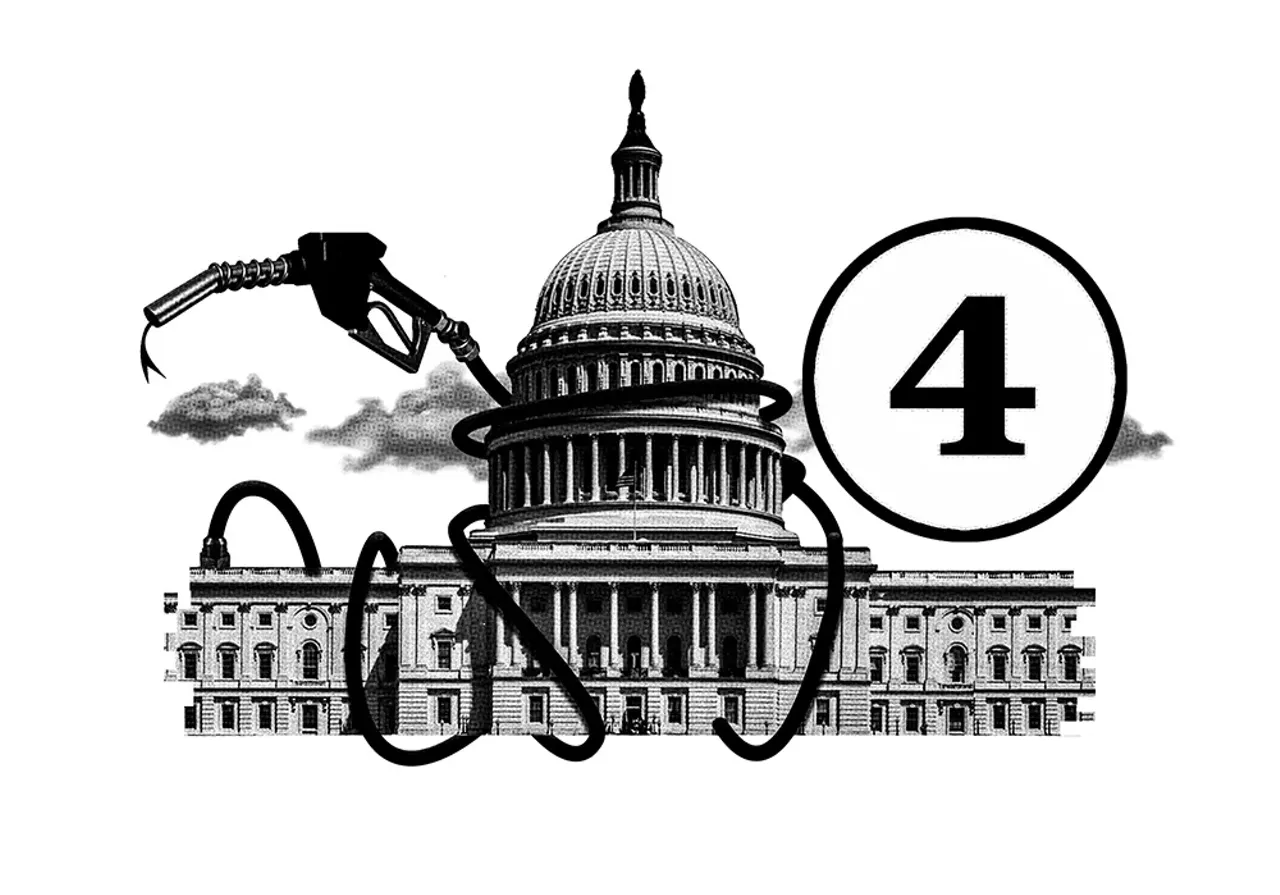
![5: Dark money interference in U.S. politics undermines democracy The same group of conservative dark money organizations that opposed President Joe Biden’s Supreme Court nomination — Judicial Crisis Network [JCN], The 85 Fund, and their affiliated groups — also funded entities that played a role in the Jan. 6 insurrection, according to a report by the watchdog group Accountable.US. They’re closely linked to Leonard Leo, co-chair of the Federalist Society, with money coming from Donors Trust (a dark-money group backed by the Koch network) and the Bradley Foundation. “These dark money groups not only funded Leo’s network of organizations to the sum of over $52 million in 2020, but also funded entities in 2020 that played a role in the insurrection to the sum of over $37 million,” Accountable.US reported. While there has been coverage of dark money spending on Supreme Court nominations, Igor Derysh at Salon was alone in reporting the related involvement in Jan. 6. Just one group, JCN, spent $2.5 million “before Biden even named his nominee” Ketanji Brown Jackson, Derysh reported, “accusing Biden of caving in to leftists by promising a ‘Supreme Court nominee who will be a liberal activist.” On the other hand, “JCN spent tens of millions helping to confirm Justices Neil Gorsuch and Brett Kavanaugh, according to Open Secrets, and launched a $25 million effort to confirm Justice Amy Coney Barrett just weeks before the 2020 election,” he reported. But more disturbingly, “Donors Trust has funneled more than $28 million to groups that pushed election lies or in some way funded the rally ahead of the Capitol riot,” while “Members of the Federalist Society played key roles in Donald Trump’s attempts to overturn the election,” including attorney John Eastman, architect of Trump’s plan to get Vice President Mike Pence to overturn the election, senators Josh Hawley, R-Mo., and Ted Cruz, R-Texas, who led the objections to the certification of Trump’s loss after the riot, and Texas Attorney General Ken Paxton, who filed a lawsuit to throw out election results in key states, effectively overturning Biden’s victory. In addition, 13 of the 17 other Republican attorneys general who joined Paxton’s suit were also Federalist Society members. “It should worry us all that the groups leading the fight against Biden’s historic nomination of Judge Jackson to the Supreme Court are tied to the Jan. 6 insurrection and efforts to undermine confidence in the 2020 election,” Kyle Herrig, president of Accountable.US, told Salon. “The influence of dark money — political spending by organizations that are not required to disclose their donors — presents a major challenge to the swift functioning of the judicial nomination and confirmation process, and the US government as a whole,” Project Censored noted. “[D]ark money deeply influences political decisions in favor of select individuals’ or groups’ agendas rather than in support of the public’s best interests.” Rightwing dark money’s role in fighting Judge Jackson’s nomination and confirmation process was highlighted by Business Insider in February 2022, along with op-eds in both the Wall Street Journal and the Washington Post that covered the discussion of dark money during Judge Jackson’s confirmation hearings, and a March 2022 Mother Jones report. “However,” Project Censored noted, “none of the articles featured in the corporate press covered dark money supporting Trump’s Big Lie, the impact such funding had on promoting and reinforcing anti-democratic ideology, or the ramifications of how such dark money spending erodes public trust in government and the election process.”](https://media1.metrotimes.com/metrotimes/imager/project-censoreds-top-10-stories-of-2022-show-just-one-pattern-dominating-all-others-this-year/u/zoom/31843691/_pc-5.webp?cb=1738677340)
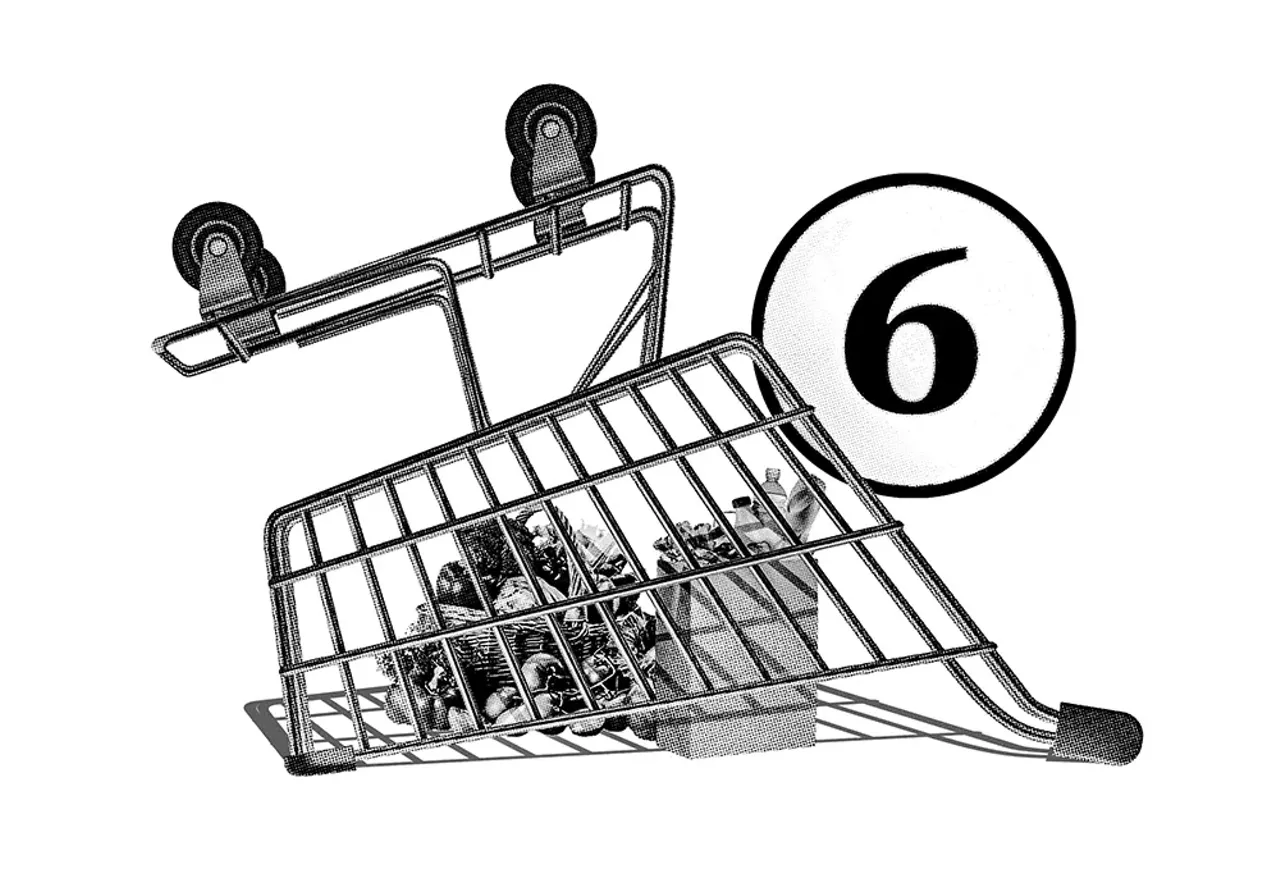
![7: Concerns for journalistic independence as Gates Foundation gives $319 million to news outlets The list of billionaires with media empires includes familiar names like Rupert Murdoch, Warren Buffett, Jeff Bezos, Mark Zuckerberg, and, most recently, Elon Musk. But, “While other billionaires’ media empires are relatively well known, the extent to which [Microsoft co-founder Bill] Gates’s cash underwrites the modern media landscape is not,” Alan MacLeod wrote for MintPress News in November 2021. MacLeod examined more than 30,000 individual grants from the the Bill and Melinda Gates Foundation, and found it had donated “more than $319 million to fund news outlets, journalism centers and training programs, press associations, and specific media campaigns, raising questions about conflicts of interest and journalistic independence,” Project Censored summarized. “Today, it is possible for an individual to train as a reporter thanks to a Gates Foundation Grant, find work at a Gates-funded outlet, and to belong to a press association funded by Gates,” MacLeod wrote. “Recipients of this cash include many of America’s most important news outlets, including CNN, NBC, NPR, PBS and The Atlantic. Gates also sponsors a myriad of influential foreign organizations, including the BBC, The Guardian, The Financial Times and The Daily Telegraph in the United Kingdom; prominent European newspapers such as Le Monde (France), Der Spiegel (Germany) and El País (Spain); as well as big global broadcasters like Al-Jazeera,” he reported. “MacLeod’s report includes a number of Gates-funded news outlets that also regularly feature in Project Censored’s annual Top 25 story lists, such as the Solutions Journalism Network ($7.2m), The Conversation ($6.6m), the Bureau of Investigative Journalism ($1m), and ProPublica ($1m) in addition to the Guardian and the Atlantic,” Project Censored noted. “Direct awards to news outlets often targeted specific issues, MacLeod reported. For example, CNN received $3.6 million to support ‘journalism on the everyday inequalities endured by women and girls across the world,’ according to one grant. Another grant earmarked $2.3 million for the Texas Tribune ‘to increase public awareness and engagement of education reform issues in Texas.’ As MacLeod noted, given Bill Gates’ advocacy of the charter school movement — which undermines teachers’ unions and effectively aims to privatize the public education system — ‘a cynic might interpret this as planting pro-corporate charter school propaganda into the media, disguised as objective news reporting.’” “[T]here are clear shortcomings with this non-exhaustive list, meaning the true figure is undoubtedly far higher. First, it does not count sub-grants — money given by recipients to media around the world,” because there’s no record of them, MacLeod reported. “For a tax-privileged charity that so very often trumpets the importance of transparency, it’s remarkable how intensely secretive the Gates Foundation is about its financial flows,” Tim Schwab, one of the few investigative journalists who has scrutinized the tech billionaire, told MintPress. Also missing were grants aimed at producing articles for academic journals, although “they regularly form the basis for stories in the mainstream press and help shape narratives around key issues,” he noted. “The Gates Foundation has given far and wide to academic sources, with at least $13.6 million going toward creating content for the prestigious medical journal The Lancet.” And more broadly “even money given to universities for purely research projects eventually ends up in academic journals, and ultimately, downstream into mass media. … Neither these nor grants funding the printing of books or establishment of websites counted in the total, although they too are forms of media.” “No major corporate news outlets appear to have covered this issue,” only a scattering of independent outlets, Project Censored noted. This despite the fact that “As far back as 2011, the Seattle Times published an article investigating how the Gates Foundation’s ‘growing support of media organizations blurs the line between journalism and advocacy.’”](https://media2.metrotimes.com/metrotimes/imager/project-censoreds-top-10-stories-of-2022-show-just-one-pattern-dominating-all-others-this-year/u/zoom/31843693/_pc-7.webp?cb=1738677279)
![8: CIA discussed plans to kidnap or kill Julian Assange The CIA seriously considered plans to kidnap or assassinate WikiLeaks founder Julian Assange in late 2017, according to a September 2021 Yahoo! News investigation, based on interviews with more than 30 former U.S. officials, eight of whom detailed U.S. plans to abduct Assange and three of whom described the development of plans to kill him. If it had been up to CIA Director Mike Pompeo, they almost certainly would have been acted on, after WikiLeaks announced it had obtained a massive tranche of files — dubbed “Vault 7” — from the CIA’s ultra-secret hacking division, and posted some of them online. In his first public remarks as Donald Trump’s CIA director, “Pompeo devoted much of his speech to the threat posed by WikiLeaks” Yahoo! News noted. “Rather than use the platform to give an overview of global challenges or to lay out any bureaucratic changes he was planning to make at the agency.” He even called it “a non-state hostile intelligence service often abetted by state actors like Russia,” a designation intended to grant the CIA wide latitude in what actions it took, while shielding it from congressional oversight. “Potential scenarios proposed by the CIA and Trump administration officials included crashing into a Russian vehicle carrying Assange in order to grab him, shooting the tires of an airplane carrying Assange in order to prevent its takeoff, and engaging in a gun battle through the streets of London,” Project Censored summarized. “Senior CIA officials went so far as to request ‘sketches’ or ‘options’ detailing methods to kill Assange.” “WikiLeaks was a complete obsession of Pompeo’s,” a former Trump administration national security official told Yahoo! News. “After Vault 7, Pompeo and [Deputy CIA Director Gina] Haspel wanted vengeance on Assange.” It went so far that “Pompeo and others at the agency proposed abducting Assange from the embassy and surreptitiously bringing him back to the United States via a third country — a process known as rendition,” they reported. (Assassination entered the picture later on.) Since it would take place in Britain, there had to be agreement from them. “But the British said, ‘No way, you’re not doing that on our territory, that ain’t happening,’” a former senior counterintelligence official told Yahoo! News. There was also pushback from National Security Council (NSC) lawyers and the Department of Justice, which wanted to put Assange on trial. But the CIA continued to push for capturing or killing Assange. Trump’s “NSC lawyers were bulwarks against the CIA’s potentially illegal proposals, according to former officials,” Yahoo! News reported, but the CIA’s own lawyers may have been kept in the dark. “When Pompeo took over, he cut the lawyers out of a lot of things,” a former senior intelligence community attorney told them. “Pompeo’s ready access to the Oval Office, where he would meet with Trump alone, exacerbated the lawyers’ fears. [The NSC’s top lawyer John] Eisenberg fretted that the CIA director was leaving those meetings with authorities or approvals signed by the president that Eisenberg knew nothing about, according to former officials.” “US plans to kidnap or assassinate Julian Assange have received little to no establishment news coverage in the United States, other than scant summaries by Business Insider and The Verge, and tangential coverage by Reuters, each based on the original Yahoo! News report,” Project Censored notes. “Among US independent news outlets, Democracy Now! featured an interview with Michael Isikoff, one of the Yahoo! News reporters who broke the story, and Jennifer Robinson, a human rights attorney who has been advising Julian Assange and WikiLeaks since 2010. Rolling Stone and The Hill also published articles based on the original Yahoo! News report.”](https://media1.metrotimes.com/metrotimes/imager/project-censoreds-top-10-stories-of-2022-show-just-one-pattern-dominating-all-others-this-year/u/zoom/31843694/_pc-8.webp?cb=1738677316)
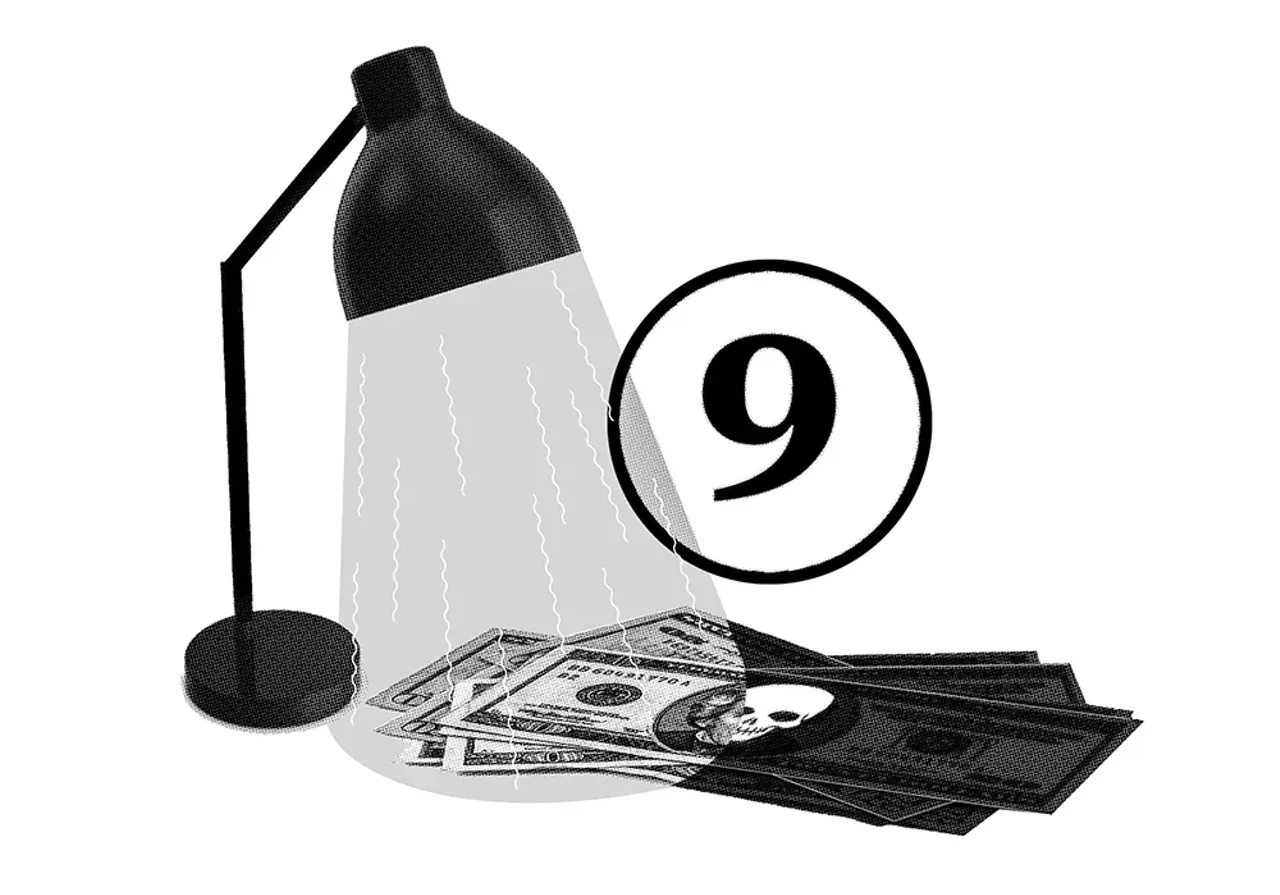
![10: Major media outlets lobby against regulation of ‘surveillance advertising’ “Surveillance advertising” — collecting users’ data to target them with tailored advertising — has become a ubiquitous, extremely profitable practice on the world’s most popular social media apps and platforms — Facebook, YouTube, Instagram, TikTok, etc. But now, as Lee Fang reported for The Intercept in February 2022, the Biden administration’s Federal Trade Commission, or FTC, is seeking to regulate user data collection. Lobbyists for the Interactive Advertising Bureau, or IAB are pushing back. “In a letter, IAB called for the FTC to oppose a ban on data-driven advertising networks, claiming the modern media cannot exist without mass data collection,” Fang reported. “The IAB represents both data brokers and online media outlets that depend on digital advertising, such as CNN, the New York Times, MSNBC, Time, U.S. News & World Report, the Washington Post, Vox, the Orlando Sentinel, Fox News, and dozens of other media companies,” Fang explained. “The privacy push has largely been framed as a showdown between technology companies and the administration,” but “The lobbying reveals a tension that is rarely a center of the discourse around online privacy: Major media corporations increasingly rely on a vast ecosystem of privacy violations, even as the public relies on them to report on it.” As a result, “Major news outlets have remained mostly silent on the FTC’s current push and a parallel effort to ban surveillance advertising by the House and Senate by Rep. Anna Eshoo, D-Calif., and Sen. Cory Booker, D-N.J.,” Fang concluded. “The IAB argues that targeted advertising — and, by extension, the siphoning of user data — has become necessary due to declining revenues from print sales and subscriptions,” Project Censored summarized. “Non-digital advertising revenue decreased from $124.8 billion in 2011 to $89.8 billion in 2020, while digital advertising revenue rose from $31.9 billion to $152.2 billion in the same period, according to Pew Research.” Complicating matters, “The personal information collected by online media is typically sold to aggregators, such as BlueKai (owned by Oracle) and OpenX, that exploit user data — including data describing minors — to create predictive models of users’ behavior, which are then sold to advertising agencies. The covert nature of surveillance advertising makes it difficult for users to opt out.” In addition, “The user information collected by media sites also enables direct manipulation of public perceptions of political issues, as famously happened when the British consulting firm Cambridge Analytica tapped into personal data from millions of Facebook users to craft campaign propaganda during the 2016 US presidential election.” “The corporate media have reported the FTC’s openness to new rules limiting the collection and exploitation of user data, but have generally not drawn attention to IAB lobbying against the proposed regulations,” Project Censored noted, citing articles in the Wall Street Journal and the Washington Post as examples. “[N]either outlet discussed IAB, its lobbying on this issue, or the big media clients the organization represents.”](https://media2.metrotimes.com/metrotimes/imager/project-censoreds-top-10-stories-of-2022-show-just-one-pattern-dominating-all-others-this-year/u/zoom/31843696/_pc-10.webp?cb=1738677380)


![Ain’t no party like a [redacted] party!](https://media2.metrotimes.com/metrotimes/imager/ten-years-of-the-foilies/u/slideshowsearch/38828647/2025_foilies-cover-web.webp?cb=1741895688)
